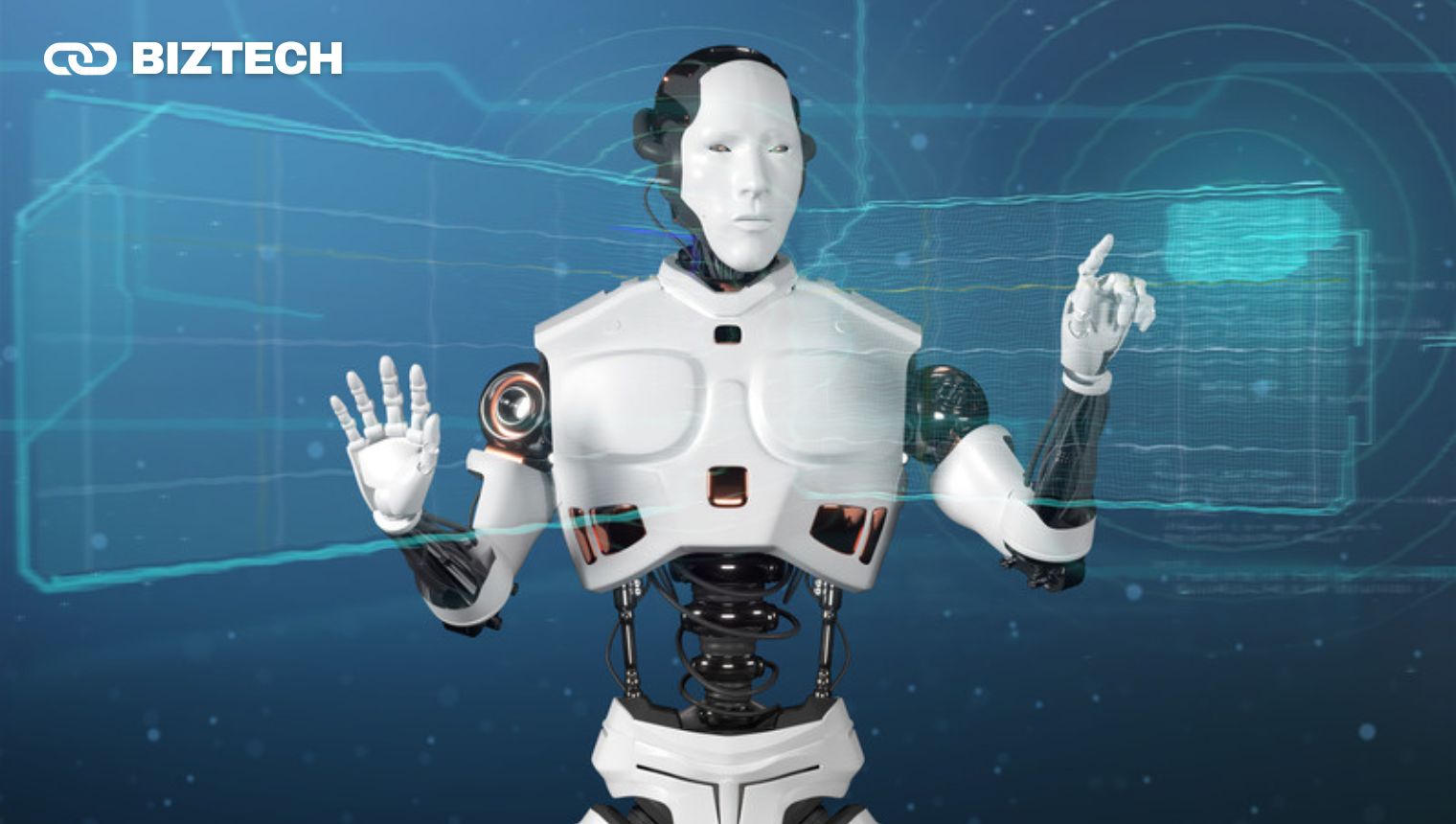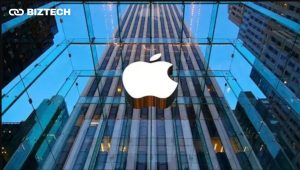Stay connected with BizTech Community—follow us on Instagram and Facebook for the latest news and reviews delivered straight to you.
Artificial intelligence (AI) is transforming the world of work at an unprecedented pace. What was once the stuff of science fiction—machines that learn and adapt—is now a reality, reshaping industries across the globe. From automating routine tasks to enhancing decision-making, AI is changing the way we work. But as with any major technological shift, this transformation brings both risks and opportunities. While AI has the potential to create new industries and job roles, it also threatens to make certain jobs obsolete, leaving workers concerned about their future. As AI continues to evolve, the key question is: how will it impact the workforce?
The Rise of AI in the Workplace
AI technologies, such as machine learning, natural language processing, and computer vision, have made remarkable progress in recent years. These advancements allow machines to perform tasks that traditionally require human intelligence, including analyzing data, recognizing patterns, and making decisions. Industries ranging from healthcare and finance to manufacturing and retail are incorporating AI into their operations to improve efficiency, reduce costs, and offer more personalized services.
AI-powered automation has already begun to revolutionize many aspects of work. For example, in customer service, AI-driven chatbots can handle routine inquiries, freeing up human agents to focus on more complex issues. In finance, AI algorithms are used to detect fraudulent transactions and optimize trading strategies. Meanwhile, in healthcare, AI helps doctors diagnose diseases by analyzing medical images and patient data.
While these developments hold immense potential, they also raise concerns about job displacement. As AI takes on more tasks, some jobs that humans once performed may become redundant, leading to widespread fears about job losses.
Jobs at Risk of Automation
One of the primary concerns surrounding AI is its potential to replace human workers, particularly in jobs that involve routine, repetitive tasks. A 2020 report by the World Economic Forum (WEF) estimated that by 2025, AI and automation could displace about 85 million jobs globally. Jobs in industries such as manufacturing, retail, transportation, and data entry are particularly vulnerable.
1. Manufacturing and Production
The manufacturing sector has long been a hotbed for automation, and AI is accelerating this trend. AI-powered robots are now capable of performing tasks that require precision and speed, such as assembling products, welding, and packaging. For example, Amazon’s fulfillment centers rely heavily on AI-driven robots to sort and package goods, reducing the need for human labor. While automation increases productivity, it also reduces the demand for manual labor in assembly lines and production facilities.
2. Retail and Customer Service
In retail, AI is being used to streamline inventory management, optimize pricing, and personalize customer experiences. Self-checkout kiosks and AI-powered chatbots are increasingly replacing human cashiers and customer service representatives. For example, Walmart and other large retailers have adopted AI-powered solutions to manage inventory and reduce the need for in-store workers. As online shopping continues to grow, more traditional retail jobs are at risk of being automated.
3. Transportation and Logistics
The transportation sector is also being reshaped by AI, with autonomous vehicles and drones poised to revolutionize how goods and people are transported. Companies like Tesla and Waymo are leading the development of self-driving cars and trucks, which could eventually replace millions of driving jobs. In logistics, AI is used to optimize delivery routes and manage warehouse operations, reducing the need for human drivers and warehouse staff.
4. Data Entry and Routine Administrative Work
Administrative roles that involve data entry, bookkeeping, and scheduling are highly susceptible to AI-driven automation. AI-powered software can handle these tasks more accurately and quickly than humans, leading to a decline in demand for roles such as clerks, secretaries, and office assistants. AI-based tools like RPA (Robotic Process Automation) are being adopted in industries like banking and insurance to automate repetitive tasks, from processing claims to handling customer inquiries.
New Opportunities Created by AI
While AI threatens some jobs, it is also creating new opportunities across various industries. The World Economic Forum predicts that while 85 million jobs may be displaced by AI, 97 million new roles could emerge by 2025. These new jobs will require a blend of technical expertise and human creativity, particularly in areas where AI complements rather than replaces human workers.
1. AI and Machine Learning Specialists
The rise of AI is driving demand for professionals who can develop, implement, and maintain AI systems. AI and machine learning specialists are among the most sought-after professionals in today’s job market. These roles involve creating algorithms, training models, and ensuring that AI systems operate efficiently. Companies across sectors are hiring data scientists, AI engineers, and machine learning experts to build AI-driven solutions that enhance business operations.
2. Data Analysts and Scientists
AI relies heavily on data to function, which has led to a growing demand for data analysts and data scientists who can collect, clean, and interpret large datasets. These professionals play a critical role in feeding AI systems with the information they need to learn and make decisions. Data analysts are needed in industries like healthcare, finance, and marketing to help companies leverage data for better decision-making.
3. Cybersecurity Specialists
As AI becomes more integrated into business operations, cybersecurity has become a top priority. AI-driven systems are susceptible to cyberattacks, which has led to an increased demand for cybersecurity experts who can protect these systems from threats. Roles in cybersecurity include designing secure AI systems, detecting vulnerabilities, and responding to security breaches.
4. AI Trainers and Ethicists
With AI playing a larger role in decision-making, companies are increasingly hiring professionals to train AI systems and ensure they operate ethically. AI trainers are responsible for providing feedback to AI algorithms to improve their accuracy and performance. Meanwhile, AI ethicists work to ensure that AI systems are designed and used responsibly, particularly in areas like facial recognition and decision-making algorithms where bias and fairness are major concerns.
5. Healthcare and AI Integration Roles
AI is revolutionizing healthcare by enabling faster, more accurate diagnoses and personalized treatments. This shift is creating new opportunities for healthcare professionals who can work alongside AI to improve patient care. For example, radiologists and pathologists are using AI to analyze medical images and identify abnormalities more quickly. AI is also being used to predict patient outcomes and recommend personalized treatment plans, leading to new roles in AI-assisted healthcare.
The Future of Work: Collaboration Between AI and Humans
The rise of AI doesn’t necessarily mean the end of human jobs; rather, it signals a shift in how we work. In many cases, AI will augment human capabilities rather than replace them entirely. For example, in healthcare, AI can assist doctors by analyzing vast amounts of medical data and suggesting potential diagnoses, but the final decision still rests with the human doctor. Similarly, in creative industries, AI can be used to generate ideas and content, but human creativity and intuition remain essential.
AI has the potential to take over repetitive, mundane tasks, allowing human workers to focus on more complex, creative, and strategic aspects of their jobs. This shift will likely require workers to develop new skills, particularly in areas like data analysis, programming, and critical thinking. Lifelong learning and upskilling will become essential for workers to remain competitive in the AI-driven economy.
Preparing for the AI Revolution
As AI continues to reshape the future of work, governments, businesses, and workers must prepare for the changes ahead. Policymakers will need to implement strategies to mitigate job displacement, such as investing in education, training programs, and social safety nets. Companies will need to focus on reskilling their workforce and fostering a culture of continuous learning.
Workers, for their part, must be proactive in adapting to the new realities of the job market. Upskilling and embracing new technologies will be essential for those looking to stay relevant in the AI-driven economy. Fortunately, the rise of online learning platforms and vocational training programs makes it easier than ever for workers to acquire the skills needed to thrive in the age of AI.






